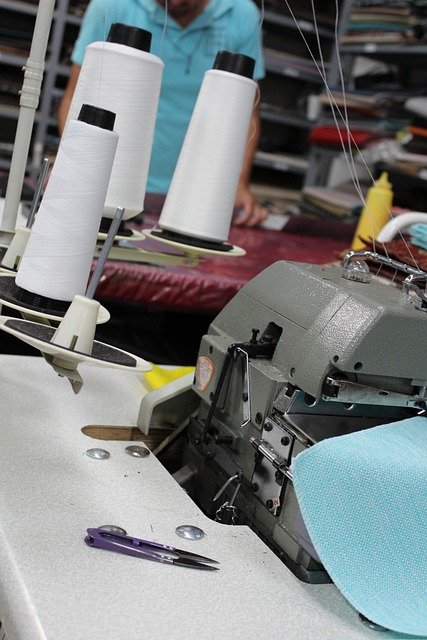Another Chinese novel brings me back to the community, it is State Order by Wang Shiyue. Unlike other Chinese narrative proposals that focus on their culture and ancestral traditions, this work is set in a textile factory in contemporary China, allowing us to delve into the daily life of the world's great economic power and also the second most populous nation in the world. Family and work relationships give rise to themes such as economic and moral bankruptcy, the limits of loyalty, greed and deceit.
The story follows the main character, identified as "the boss", who with great effort created a textile factory, but, in the face of so much competition, was going through a critical period, to the point of dragging a debt of four months' salary to its employees. The narrator also introduces us to Charly Lai, a very ambitious person whose questionable financial management led to problems. Lai was the one who won the state bids and then subcontracted the employer, which is how the order came to make 200,000 American flags in five days, which means that all employees must remain in the factory until the task is completed.

Source
The boss saw here the great opportunity of his life, his greed was stronger than common sense, so much so that he stopped seeing his workers as human beings, taking away their rest and tripling their working hours. The process of making the flags was so traumatic that it led him down a path of tragedy and bitterness. The action that precipitates the denouement is the death of an employee from anemia, but for the purposes of the novel his death was caused by exhaustion, his body was discovered two days later, which allows us to infer that the worker is expendable.
The story uses the events of September 11, 2001, the attack on the Twin Towers in New York, as a referential context, which serves to justify the state's request. This event is seen from a mercantile point of view, since for Chinese businessmen it represented a good opportunity to do business. Prostitution and infidelity are also marked in the narrative. The boss, although married, enjoys the sexual pleasures he can afford because it allows him to forget his daily problems.

Source
Greed can be distinguished from several angles, not only Charly Lai and the boss are pointed out, also the parents of the deceased employee go to the lawyer Zhou Cheng, who proclaims himself "defender of the workers", and turns out to be a miserable and unscrupulous person whose goal is to make money by dishonest means. As the novel progresses, the reader is immersed in an environment saturated with corruption and immorality, where no redemption can be seen in the characters, but rather a downward spiral.
State Order offers several interesting reflections, when money becomes the priority over integrity and health, then we witness an inhumanized society where each person only clings to material interests as the only reason to exist.
Versión en EspañolOtra novela china me trae de vuelta a la comunidad, se trata de Pedido estadal de Wang Shiyue. A diferencia de otras propuestas narrativas chinas que se enfocan en su cultura y tradiciones ancestrales, esta obra se desarrolla en una fábrica textil de la China contemporánea, así que nos permitirá indagar en la cotidianidad de la gran potencia económica mundial y además la segunda nación más poblada del mundo. Relaciones familiares y laborales dan lugar a temas como la quiebra económica y moral, los límites de la lealtad, la codicia y el engaño.
La historia sigue al personaje principal, identificado como "el patrón", quien con mucho esfuerzo creó una fábrica textil, pero, ante tanta competencia, atravesaba un período crítico, al punto de arrastrar una deuda de cuatro meses de salario a sus empleados. El narrador también nos presenta a Charly Lai, persona muy ambiciosa y cuyos cuestionables manejos de las finanzas propiciaron los problemas. Lai era quien ganaba las licitaciones estadales y luego subcontrataba al patrón, así fue como llegó el encargo de confeccionar 200 mil banderas estadounidenses en cinco días, lo que se traduce en que todos los empleados deben permanecer en la fábrica hasta culminar la tarea.

Fuente
El patrón vio aquí la gran oportunidad de su vida, su codicia pudo más que el sentido común, tanto que dejó de ver a sus trabajadores como seres humanos, quitándoles el descanso y triplicando las horas laborales. El proceso de fabricación de las banderas fue tan traumático que le llevó por un camino de tragedias y amarguras. La acción que precipita el desenlace es la muerte de un empleado por anemia, pero para efectos de la novela tal deceso se produjo por cansancio, su cuerpo fue descubierto dos días después, lo que permite inferir que el trabajador es prescindible.
La historia utiliza como contexto referencial los acontecimientos del 11 de septiembre de 2001, el atentado a las Torres Gemelas en Nueva York, lo cual sirve para justificar el pedido estadal. Tal suceso es visto desde una óptica mercantil ya que para los empresarios chinos representó una buena oportunidad para hacer negocios. La prostitución y la infidelidad también aparecen marcados en la narración. El patrón, aunque es casado, disfruta de los placeres sexuales que puede pagar porque le permite olvidar los problemas cotidianos.

Fuente
La codicia se puede distinguir desde varios ángulos, no solamente Charly Lai y el patrón son señalados, también los padres del empleado fallecido acuden con el abogado Zhou Cheng, quien se autoproclama "defensor de los obreros", y resulta ser una persona miserable y sin escrúpulos cuyo objetivo es ganar dinero por vías deshonestas. A medida que avanza la novela, el lector se sumerge en un entorno saturado de corrupción e inmoralidad, donde no se observa redención alguna en los personajes sino una espiral descendente.
Pedido estadal ofrece varias reflexiones interesantes, cuando el dinero pasa a ser la prioridad por sobre la integridad y la salud, entonces presenciamos una sociedad inhumanizada donde cada persona solamente se aferra a los intereses materiales como única razón de existir.
✓Text translated with DeepL.
✓Texto traducido con DeepL.


